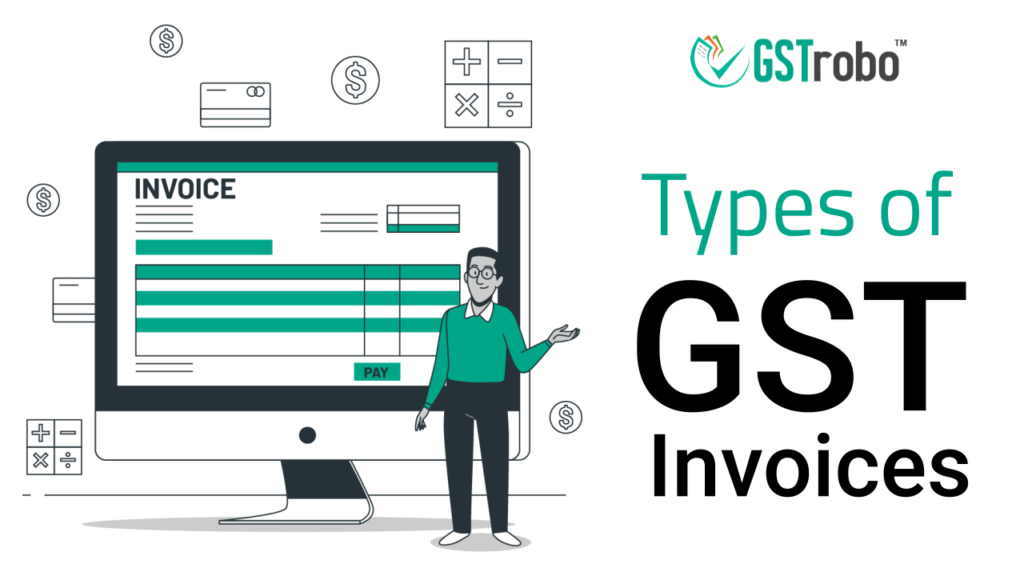Types of GST Invoices
A GST invoice proves the supply of goods or/and services. GST invoices also help in claiming eligible Input Tax Credit (ITC), transport goods, and IRN generation. Notwithstanding, in various situations, various types of GST invoices are generated. So, we will discuss different types of GST invoices issued in different scenarios:

What are the Different Types of GST Invoices?
There are 8 types of GST invoices and we have tried listing out each one of it for you:
- Pro-forma Invoice
A Pro-forma invoice is issued by a taxpayer when any prospective buyer enquires about any goods or/and services. In simple words, the Pro-forma invoice is a type of quotation form that consists of
- The estimated value of goods/service;
- Document Number;
- Document Date;
- Description of items;
- Expected time of delivery; and
- Terms and conditions.
- Tax Invoice
Generally, every taxpayer issues a tax invoice for supplying goods or/and services. A tax invoice transfers the title of ownership of the supplied goods or/and services to the recipient. Here is the list of details that shall be mentioned in a tax invoice: Name, address, and GSTIN of the supplier and recipient;
- Invoice Number;
- Invoice date;
- HSN code for goods or SAC for services;
- Item Description;
- Unique Quantity Code together with goods quantity sold;
- Total value;
- Taxable value after discount or abatement;
- GST rate;
- Amount of tax charged;
- IRN;
- QR Code;
- Place of supply;
- State Code;
- Delivery Address; and
- DSC or signature of the supplier or authorized representative
- Bill of Supply
A Bill of Supply is like the GST-Tax Invoice. A taxpayer needs to issue a bill of supply for those transactions on which GST is not applicable. For instance, if a taxpayer is registered under a composition scheme or deals in exempted supplies, at that point such taxpayer needs to issue a bill of supply and not a tax invoice.
- Invoice-cum-Bill of Supply
A taxpayer needs to issue invoice-cum-bill of supply in those cases when he/she is supplying goods or/and services that contain both taxable and non-taxable supply. A taxpayer needs to issue invoice-cum-bill of supply only to an unregistered taxable person.
- Revised Invoice/Supplementary Tax Invoice
A taxpayer needs to issue a revised invoice or supplementary tax invoice in those cases when there is any mistake found in the originally issued tax invoice. However, it can be in the form of a credit or debit note.
- Credit Note: A credit note is issued by a taxpayer if he/she has already issued an invoice and the taxable value of such invoice is in excess or when the recipient has returned the goods or/and services.
- Debit Note: A debit note is issued by a taxpayer if he/she has already issued an invoice and the taxable value of such invoice is in deficit.
- Payment Voucher
As we know under reverse charge mechanism, the recipient needs to pay the tax liability. In such cases the payment voucher is issued by the supplier to the recipient.
- ISD Invoice
ISD invoice is issued by the input service distributor to distribute input tax credit (ITC) to the branches formed and registered under the same PAN.
- Delivery Challan
There are two scenarios when delivery challan is issued by the taxpayer:
- When goods are moved prior to tax invoice preparation.
- When there is any stock transfer within the State.
